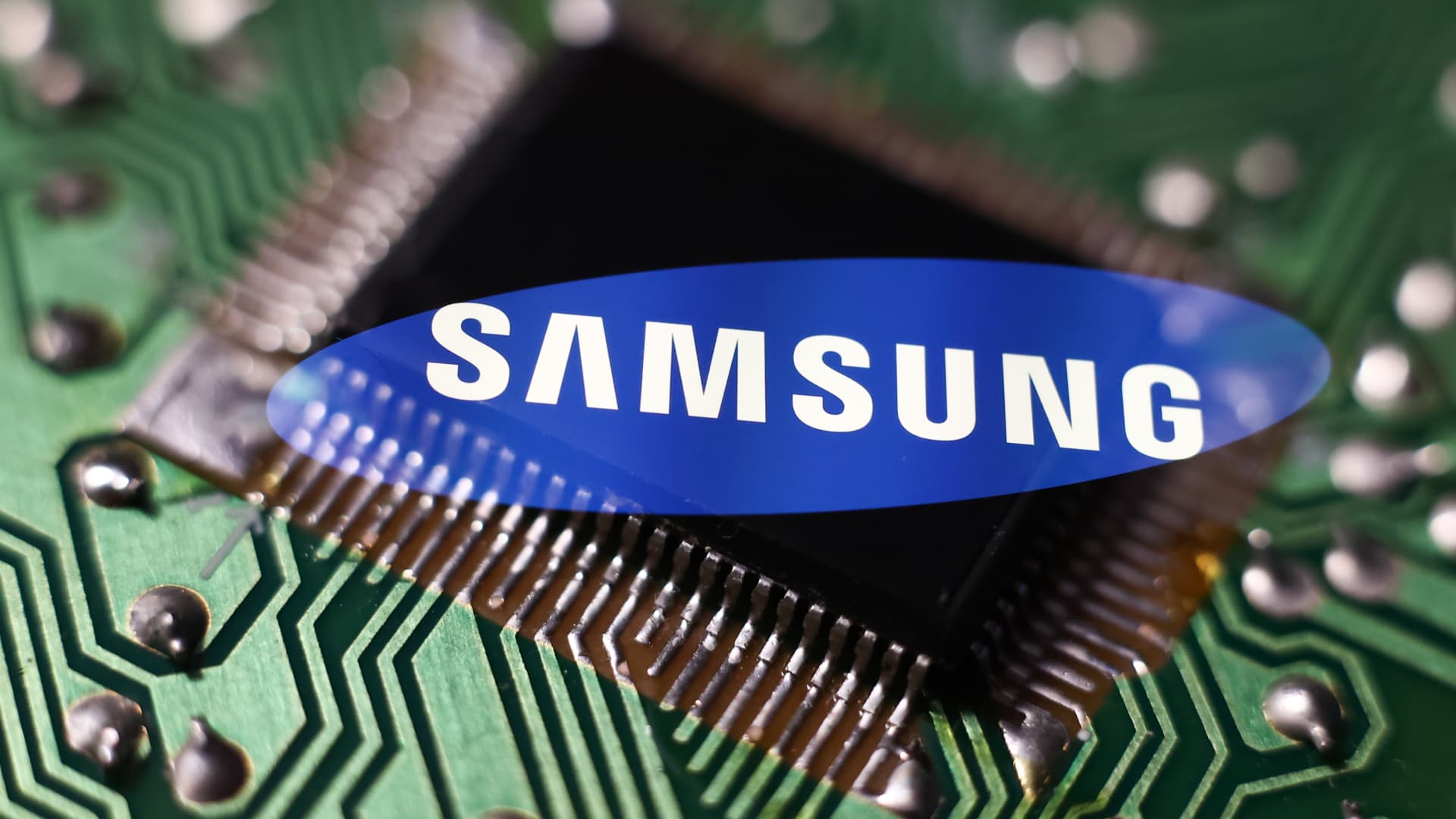Samsung is the world’s biggest maker of memory chips.
Jakub Porzycki | Nurphoto | Getty Images
Samsung Electronics on Wednesday laid out its roadmap to expand its chip manufacturing business, including leading-edge semiconductors, as it looks to catch up with leader TSMC.
Perhaps best known for its smartphones, the South Korean technology firm has a huge semiconductor business that is its main profit driver. It makes memory chips that go into data centers and laptops.
But Samsung also has a chip manufacturing business known as a foundry, which produces semiconductors for other companies that design chips, such as Qualcomm.
Earlier this year, Samsung said it would begin making chips with a 2 nanometer process in 2025. The company has now given a more detailed roadmap, saying it will begin mass production of the 2nm process for mobile applications in 2025, then expand to high-performance computing in 2026 and to automotive in 2027.
The nanometer figure refers to the size of each individual transistor on a chip. The smaller the transistor, the more of them can be packed onto a single semiconductor. Typically, a reduction in nanometer size can yield more powerful and efficient chips.
For reference, Apple’s latest iPhone processor is made using a 5nm process. Samsung anticipates that smartphones will require more advanced chips moving forward and is preparing for that in 2025.
High-performance computing refers to chips for data centers to train and deploy artificial intelligence applications, as Samsung looks to capitalize on the growth of the technology, partly spurred by the popularity of OpenAI’s ChatGPT. Nvidia, a market leader in AI chips, relies on foundries like TSMC to manufacture its semiconductors.
Samsung’s foundry lags Taiwan’s TSMC, the world’s biggest contract manufacturer, by some distance. In the first quarter of the year, TSMC accounted for 59% of global semiconductor foundry revenue, versus 13% for Samsung, according to Counterpoint Research.
Samsung is now looking to play catch up by upping its capacity and laying a roadmap out for high-growth areas in the chip market.
The company reiterated that its 1.4nm process will begin in 2027 as planned.
Samsung also said it is continuing to expand its chip manufacturing capacity, with new manufacturing lines in Pyeongtaek, South Korea, and Taylor, Texas, which Samsung has previously announced.
For all the latest Technology News Click Here
For the latest news and updates, follow us on Google News.

